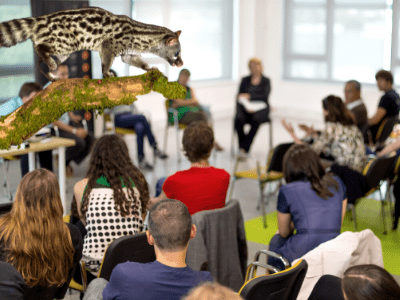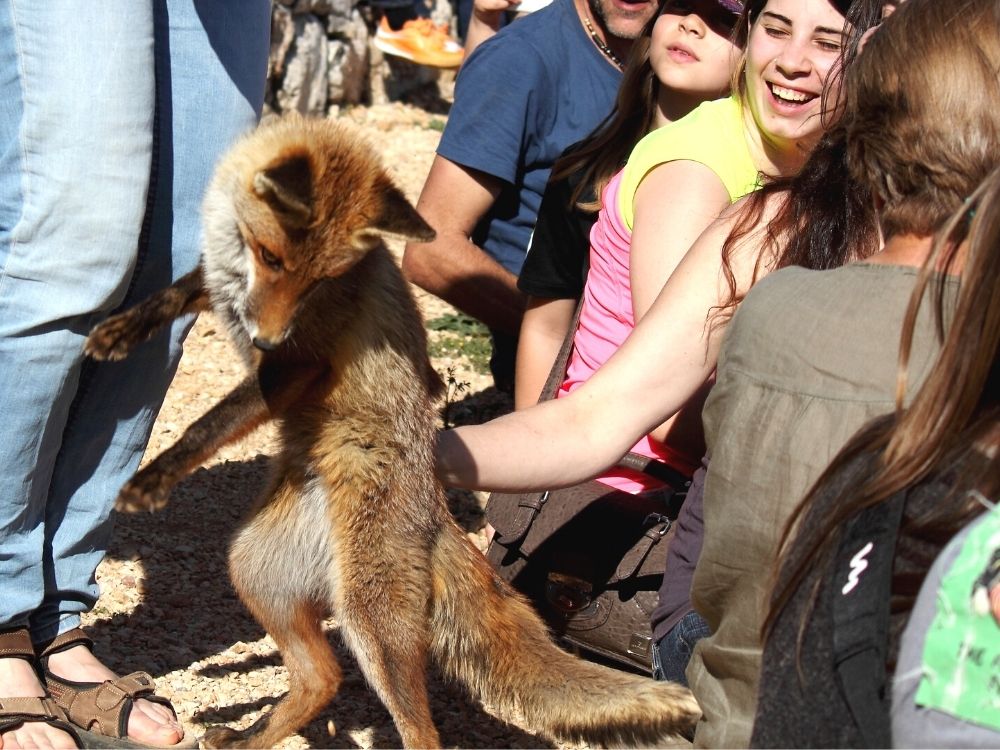
The Round Table is an active learning strategy. that encourages cooperative work in the classroom. It deals with concepts learnt during the workshops and in the classroom. At the same time, the strategic thinking of the students.
It is a courageous tactic that motivates students to think critically and globally about complex ecological issues.
The educators of the Zoo of the Pyrenees have experience as facilitators in cooperative work to be able to develop this didactic strategy with students.
Subject: Natural Sciences (Biology and Ecology)
Debate-based learning
We believe that the Round Table is an appropriate methodology to finalize the biology and ecology thematic of biology and ecology for students in secondary and post-compulsory education. Not only that it brings together the subject matter covered during the natural sciences course, but also prepares students for the challenges of real life. It teaches them the need for dialogue and compromise in our current society.
Round table methodology
Presentation of the problem
A story told by an educator will place us in the environment ofa village in the Catalan Pyrenees. We will know the point of view of different people who live or spend time in this village. From these different perspectives we will see a very current issue in the protection of the environment in Catalonia:
The reintroduction of large predators in Catalonia
Identification of the facts
Students identify the groups involved in the story and determine their official position on the problem.
Distribution of students in groups
It is preferable that the teacher prepares the groups beforehand. We require a maximum of 3 people per group. Each group will choose a spokesperson and a secretary (who will write down the ideas and control the time).
Hypotheses
Each group of students will formulate the problem and propose a solution from the point of view of their group. The hypothesis of each group will be presented using the“Elevator pitch” presentation system.
Identify gaps
- Students will choose the 3 most important problems that arise during the presentation of hypotheses.
- They will propose solutions from the point of view of their group.
- The 3 best solutions will be voted.
- The resources necessary for the development of the solutions will be identified.
- An approximate calculation will be made of the economic part necessary to carry out the project.
Evaluation
At the end of the workshop , each group will present the solution found from the point of view of their group.
What workshops can the Round Table be linked to?
The Round Table is a complementary activity. It cannot be carried out individually, because the educators need a previous introduction to the subject that will be dealt with. Students can acquire this information throughout the following workshops:

Benefits of the Round Table for students
- To understand the complexity of our society and the difficulty of making the right decisions.
- Respect the opinion of others.
- Work as a team and collaborate with opponents to find the right solutions.
- Learn how to be specific to the audience during the speech (Elevator pitch).
- Learning to manage time.


